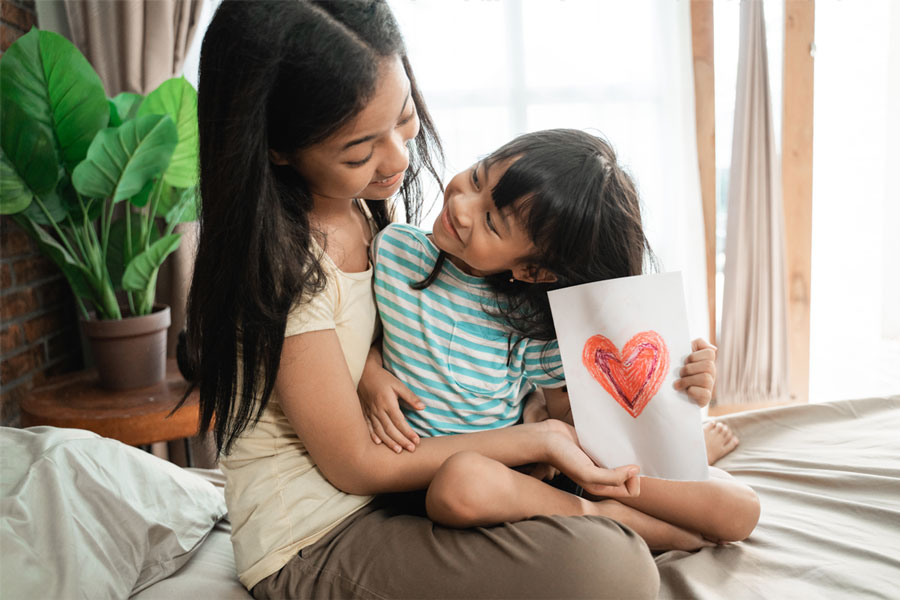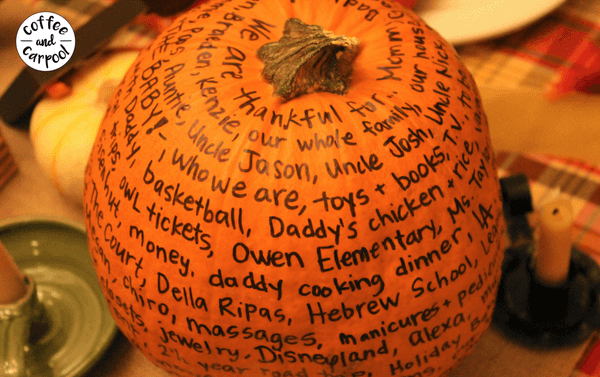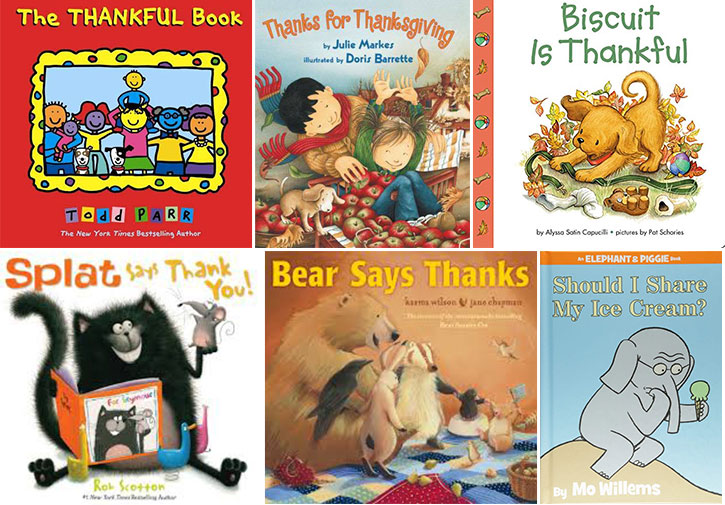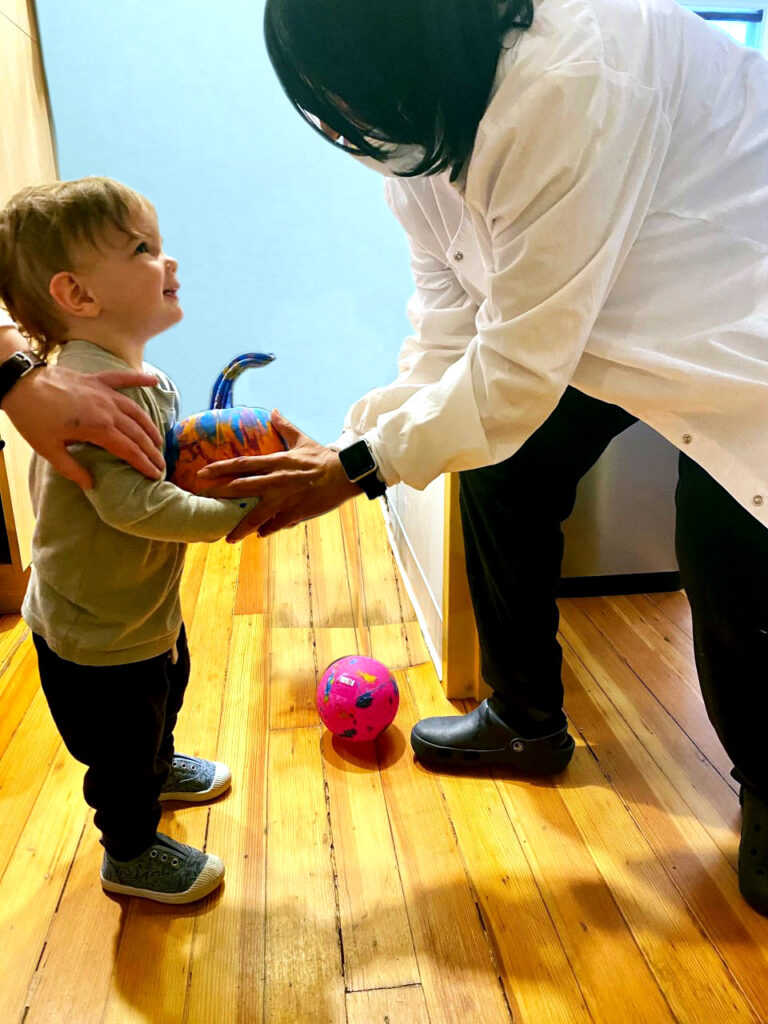Adults are overall happier and less stressed when they are grateful (Emmons, Wood, Froh & Geraghty, 2010) and the same can now be said about the relationship of gratitude in children. Children who show indications of grateful behaviors have strong connections to life satisfaction (Park & Peterson, 2006) and higher emotional intelligence (Yale Center for Emotional Intelligence). Gratitude also aids in building relationships as it brings about traits such as helpfulness, optimism, and trustworthiness (DeWall, et.al, 2012).
However, gratitude requires complex skills such as emotional knowledge and perspective taking, which are still developing in children around ages 3-5 (University of North Carolina at Greensboro). Does this mean your child cannot be grateful at this age? Not necessarily, it just means that practicing gratitude will take a little longer, but doing so will surely create a more secure foundation for this practice in their future.
There are ways to encourage and support the development of gratitude in your child that can bring them closer to being the grateful human you hope they will one day become.
Here are 5 Simple Ways to Teach Kids Gratitude:
1. Model thankfulness:
Monkey see, monkey do; child see, child also do. Use words of gratitude in your day-to-day conversations and encourage them in your child. Start with using “thank you” with the barista, teacher, or bus driver. Push it even further by using the word grateful in your vocabulary and in conversations with your child. Show appreciation through making cards to give to family members.
Modeling can permeate into dramatic play with dolls and figurines, as well as make-believe play where children can enact scenarios of gratefulness.

2. Embed gratitude in your family’s daily life:
Saying thank you is only one type of gratitude practice. Add gratefulness as a part of your family routine at the dinner table or just before bed. Ask and reflect with your family: what are you grateful for today? Try making a gratitude jar or an interesting one I came across recently: a gratitude pumpkin from coffee and carpool.

3. Read books:
Books are a great tool to use as a jumping off point for talking about thankfulness and gratitude. Many times you have read our book recommendations. So here’s one more list 🙂

- Biscuit is Thankful by Alyssa Satin Capucilli
- The Thankful Book by Todd Parr
- Thanks for Thanksgiving by Julie Markes
- Bear Says Thanks by Karma Wilson
- Splat Says Thank You by Rob Scotton
- Should I Share My Ice Cream? by Mo Willems
4. Give the gift of time and activities:
Giving and gratitude go hand in hand. Participating in service activities with your child gives them a chance to see what they have been thankful for and what they may take for granted.

5. Be present when spending time with your kids:
What does this have to do with gratitude? Spending quality time your kids teaches them to appreciate others in the best way: by spending quality time. In these moments, when you are mindful and present with your child, you are naturally modeling empathy. Empathy is one of the most vital skills needed to develop gratitude. Empathy can also be built through normalizing and labeling different feelings they feel and can feel. ( see ways to develop empathy; Berkeley)
Whether you choose to bring attention and express gratitude for those that help on the upcoming holidays, or help your children reflect on their own lives, please share with us what seems to work for you! How do you try to support your child in growing towards becoming a more thoughtful and grateful human being? We are always here for you and your children, so reach out whenever you need us. We are grateful for you 🙂
Ethos is a new mindset and model for child care and early education for children aged 6 weeks to 5 years in the South Boston, MA Area. We pride ourselves on our dedication to serving our students and families in ways that are research-driven and nurturing to who they are and can become. Request more information online here!
Till Next Post,
Aleezeh Makani
Ethos Early Learning Center Educator